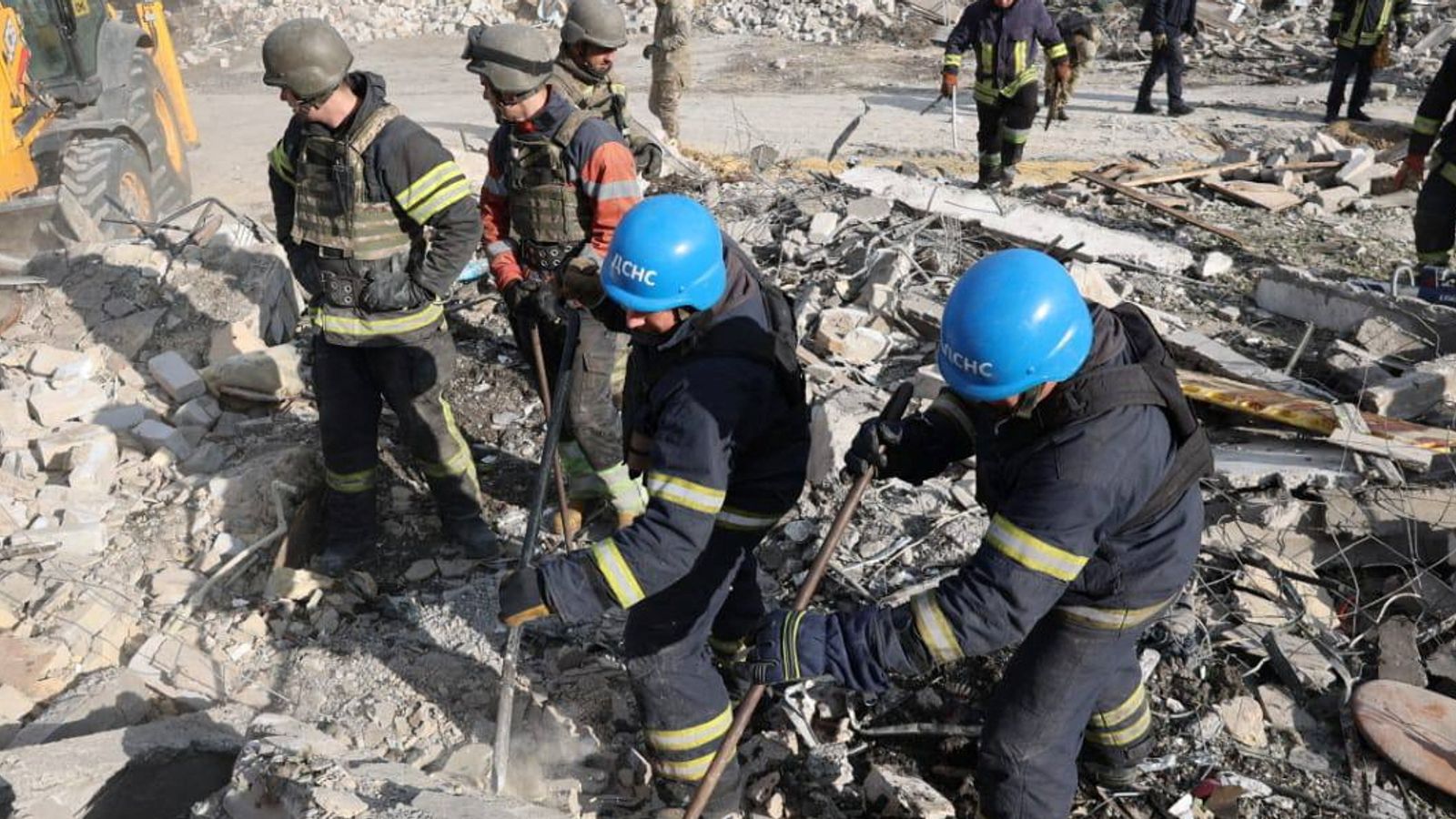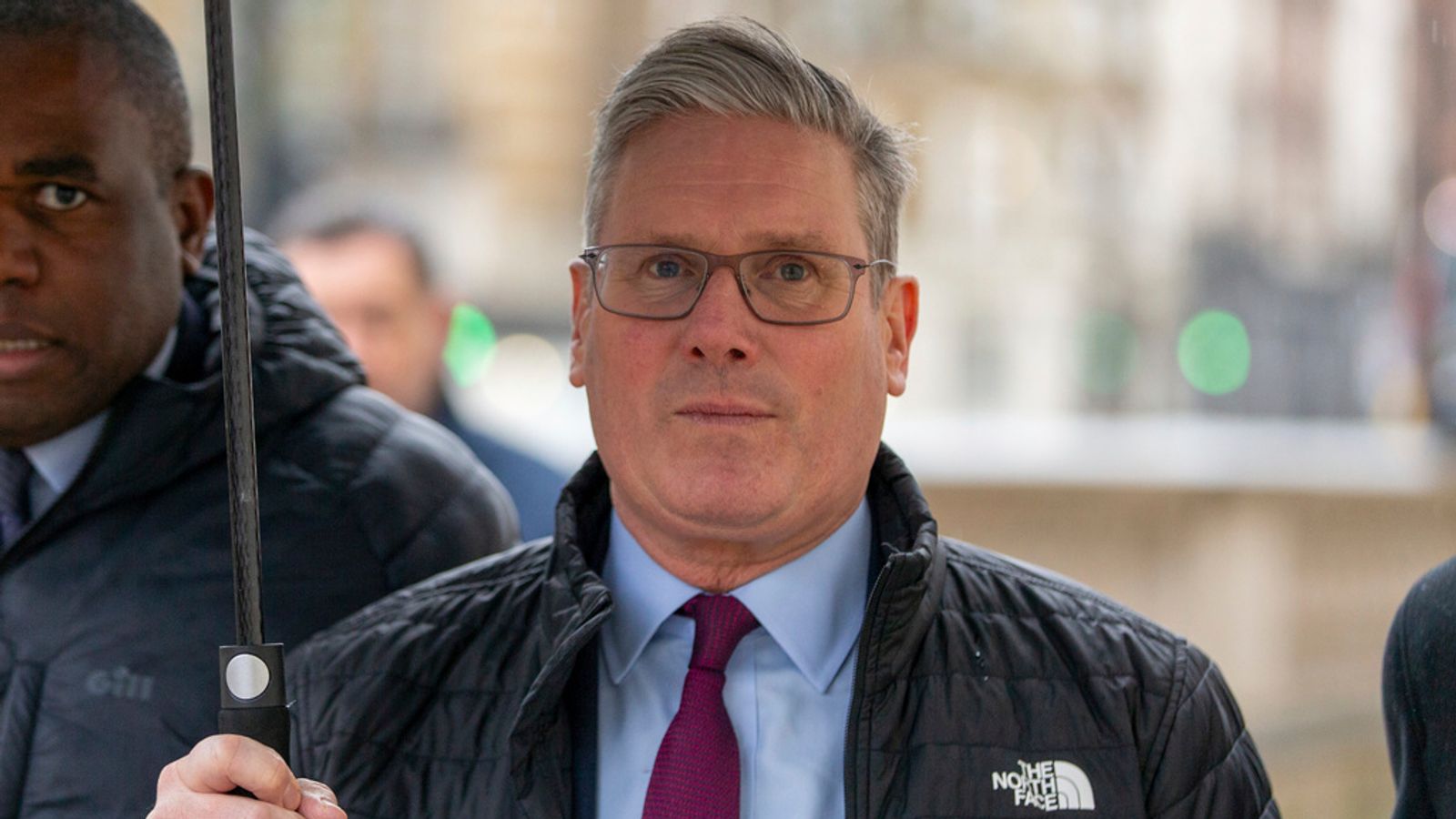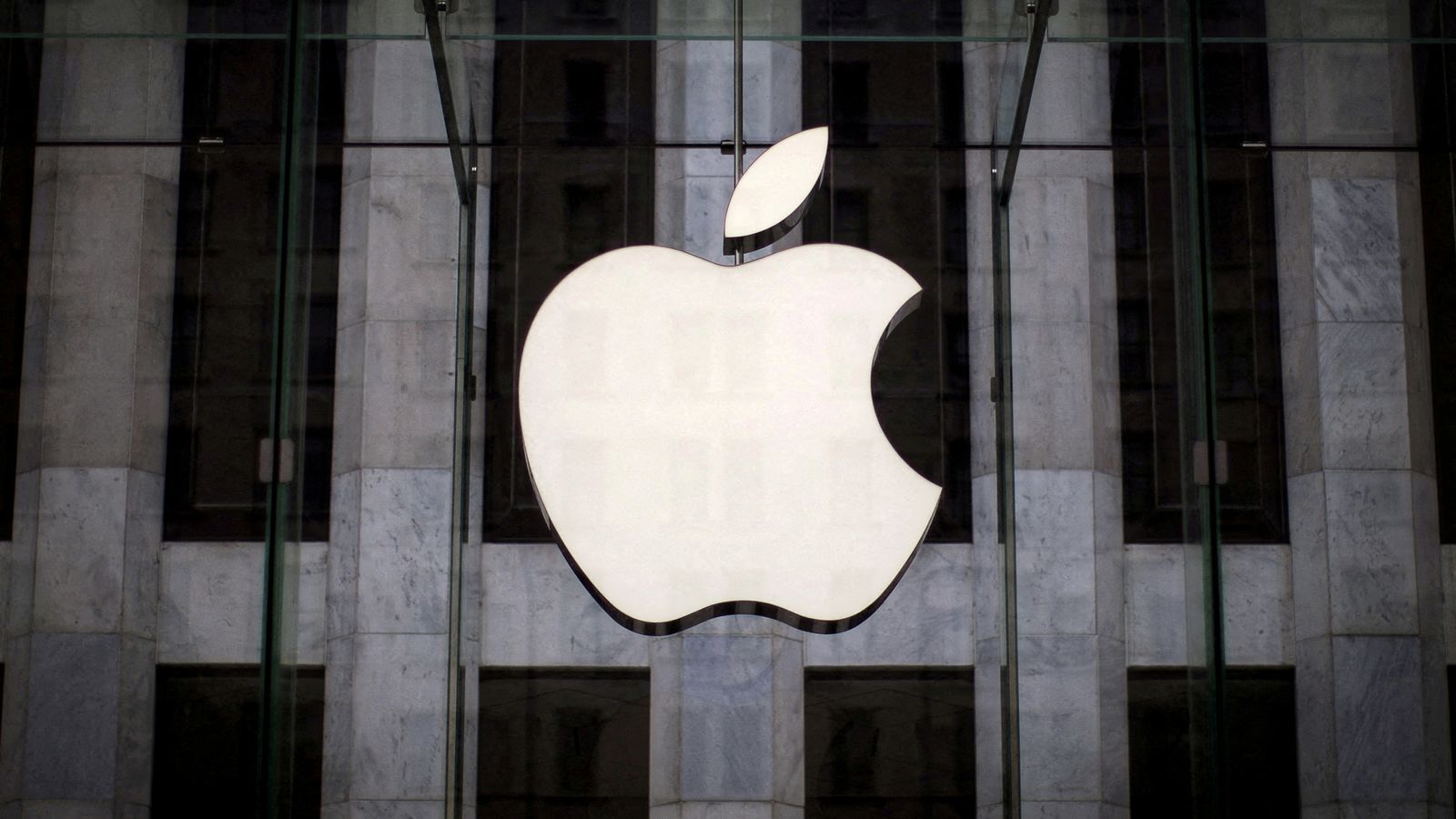At least 51 people, including a six-year-old boy, have died after a Russian rocket hit a village cafe and shop in eastern Ukraine in what the country’s President Volodymyr Zelenskyy said was one of the deadliest attacks in months.
The attack on the village of Hroza in the Kharkiv region was a “demonstrably brutal Russian crime” and “a completely deliberate act of terrorism”, Mr Zelenskyy said.
A six-year-old boy was among the dead, and seven other people were wounded, presidential chief of staff Andrii Yermak and Kharkiv governor Oleh Syniehubov said.
Ukraine: Latest updates as UK condemns ‘barbaric’ attack
Pictures of bloodied bodies lying on the ground, and others in body bags have been released by Ukrainian officials, along with images of emergency workers combing through smouldering debris.
About 60 people were in the cafe at a wake after a funeral, internal affairs minister Ihor Klymenko said.
It is still too early to confirm the total number of fatalities as many people may still be under rubble, an official has told Ukrainian state broadcaster Suspilne.
Ukraine war latest: Missile strike kills 51; ‘fragments of hand grenades’ found in bodies after Prigozhin plane crash – Putin
Hand grenade fragments found in bodies of victims after Yevgeny Prigozhin plane crash – Vladimir Putin says
Camouflaged ships and fake planes – how Russia’s protecting its Black Sea Fleet and airbases
According to preliminary information from Kyiv, the village was struck by an Iskander missile.
There were no military targets nearby, Ukraine’s defence ministry has said.
In a post on social media site X, officials claimed Russia deliberately targeted the area during lunchtime “to ensure a maximum number of casualties” from what it called “a heinous crime intended to scare Ukrainians”.
Russia has yet to respond to suggestions from Kyiv that it carried out the attack, but Moscow has repeatedly denied targeting civilians.
Condemning the attack, the UN in Ukraine said pictures of the aftermath are “absolutely horrifying”.
Denise Brown, humanitarian coordinator, said she is “appalled” by reports that Moscow was behind it, adding that intentionally targeting civilians is a war crime.
The UK’s ambassador to Ukraine, Martin Harris, said he was “horrified” over the “barbaric” attack.
Read more on the war:
Why Russia is using fake planes and camouflaged ships
Three days of mourning for the victims will take place across Ukraine’s southern Kharkiv region starting on Friday, the region’s military administration head Oleg Sinegubov said.
Military analyst
Around 500 people live in Hroza, so around 10% of the total was lost in a single hit.
It was obviously a pretty big explosion from the biggest attack in the Kharkiv region since the beginning of the war.
The size of the devastated area shows it was not just your average battlefield missile gone astray.
We’ve seen reports it could be an Iskander missile, which is a ballistic missile, or a ship missile, which have been used in these sorts of attacks before.
War crimes investigators are on the scene, as we found out by enlarging video footage from the aftermath.
Men in dark uniforms are seen climbing over the rubble and on the back of their jackets, it reads “War Crimes Kharkiv”.
The attack coincided with a summit of European leaders in Granada in southern Spain where Mr Zelenskyy tried to drum up support from Ukraine’s allies, telling them “Russian terror must be stopped.”
Hroza and other parts of the eastern Kharkiv region have been back under Ukrainian control since September 2022, after being occupied by Russia early in the war.
The village is 19 miles west of Kupiansk, where Mr Zelenskyy met troops and inspected Western supplied equipment on Tuesday.
Russia, he said on Thursday, “needs this and similar terrorist attacks for only one thing: to make its genocidal aggression the new norm for the whole world.
“Now we are talking with European leaders, in particular, about strengthening our air defence, strengthening our soldiers, giving our country protection from terror. And we will respond to the terrorists.
“The key for us, especially before winter, is to strengthen air defence, and there is already a basis for new agreements with partners.”








